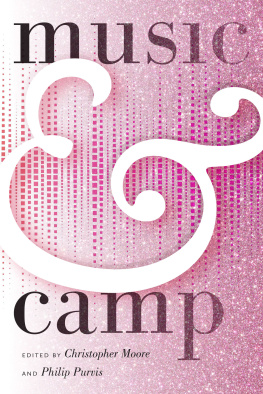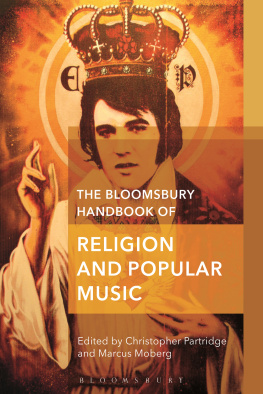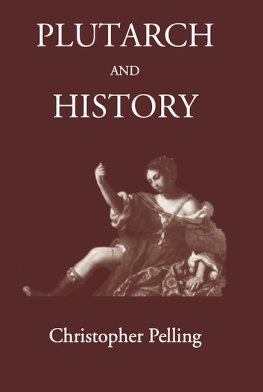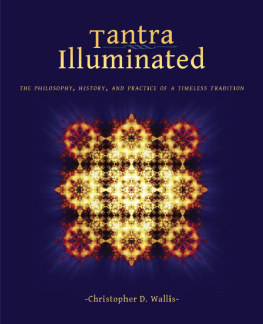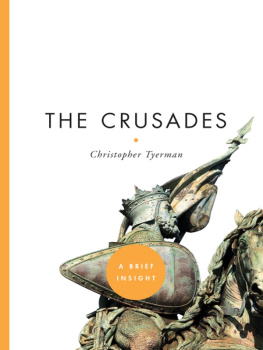Small Christopher - The Christopher Small reader
Here you can read online Small Christopher - The Christopher Small reader full text of the book (entire story) in english for free. Download pdf and epub, get meaning, cover and reviews about this ebook. year: 2016, publisher: Wesleyan University Press, genre: Art. Description of the work, (preface) as well as reviews are available. Best literature library LitArk.com created for fans of good reading and offers a wide selection of genres:
Romance novel
Science fiction
Adventure
Detective
Science
History
Home and family
Prose
Art
Politics
Computer
Non-fiction
Religion
Business
Children
Humor
Choose a favorite category and find really read worthwhile books. Enjoy immersion in the world of imagination, feel the emotions of the characters or learn something new for yourself, make an fascinating discovery.
- Book:The Christopher Small reader
- Author:
- Publisher:Wesleyan University Press
- Genre:
- Year:2016
- Rating:4 / 5
- Favourites:Add to favourites
- Your mark:
- 80
- 1
- 2
- 3
- 4
- 5
The Christopher Small reader: summary, description and annotation
We offer to read an annotation, description, summary or preface (depends on what the author of the book "The Christopher Small reader" wrote himself). If you haven't found the necessary information about the book — write in the comments, we will try to find it.
The Christopher Small reader — read online for free the complete book (whole text) full work
Below is the text of the book, divided by pages. System saving the place of the last page read, allows you to conveniently read the book "The Christopher Small reader" online for free, without having to search again every time where you left off. Put a bookmark, and you can go to the page where you finished reading at any time.
Font size:
Interval:
Bookmark:

The Christopher Small Reader
ALSO BY CHRISTOPHER SMALL
Music, Society, Education
Music of the Common Tongue: Survival and Celebration in African American Music
Musicking: The Meanings of Performing and Listening
Edited by Robert Walser
THE CHRISTOPHER SMALL READER
Wesleyan University PressMiddletown, Connecticut
Wesleyan University Press
Middletown CT 06459
www.wesleyan.edu/wespress
2016 The Estate of Christopher Small
All rights reserved
Manufactured in the United States of America
Designed by Mindy Basinger Hill
Typeset in Minion Pro
Library of Congress Cataloging-in-Publication Data
Names: Small, Christopher, 19272011. | Walser, Robert, editor.
Title: The Christopher Small reader /
Christopher Small; edited by Robert Walser.
Description: Middletown, Connecticut : Wesleyan University Press, [2016] |
Series: Music/culture | Includes bibliographical references and index.
Identifiers: LCCN 2015048308 (print) | LCCN 2015051357 (ebook) |
ISBN 9780819576392 (cloth : alk. paper) |
ISBN 9780819576408 (pbk. : alk.paper) | ISBN 9780819576415 (ebook)
Subjects: LCSH: MusicPhilosophy and aesthetics. | MusicSocial aspects. |
Musicology. | Small, Christopher, 19272011.
Classification: LCC ML423.S58 A25 2016 (print) |
LCC ML423.S58 (ebook) | DDC 780dc23
LC record available at http://lccn.loc.gov/2015048308
5 4 3 2 1
Cover illustration: Painting of Christopher Small and Neville Braithwaite performing in Sitges, Spain (Unsigned and undated.) Formerly in the collection of Christopher Small and Neville Braithwaite, now in the collection of Robert Walser and Susan McClary. Photo by Robert Walser.
CONTENTS
INTRODUCTION
Robert Walser
I am 75 years old and I have learnt that we are on the earth to enjoy it together. Music serves to explore our identity, helps us to know who we are, and to celebrate it.
Christopher Small
Christopher Small was born in New Zealand in 1927 and died in Spain in 2011 at the age of eighty-four, having spent much of his life teaching in London. I believe he was the most profound musical thinker of the twentieth century. I say that because the breadth and depth of his work, in which he drew upon his training as both a scientist and an artist, his accomplishments as a classical musician and as a devoted student of African American music, and his practical experiences as a composer, a pianist, an accompanist, and a teacher, enabled him to become the consummate insider/outsider who could empathetically challenge our assumptions about the nature of music and help us account for the pleasures that it gives us.
Mikhail Bakhtin wrote powerfully about the importance of outsiders for helping insiders understand the significance of things they had taken for granted. Chris, as a New Zealander, as a gay man, as someone without a doctoral degree who had strong opinions about higher education, and as an enthusiastic amateur musician, had forged an identity that didnt quite fit into the contexts he inhabited during most of his life. And that helped enable him to become an original thinker. Yet it is also true that the insider brings to bear crucial intimate knowledge. The writers who are normally ranked highest in explaining the significance of the classical music tradition have been mostly quite parochial, and they usually did not even imagine that they should try to place that sort of music making in a larger context of human activity. More anthropologically oriented scholars have typically not had the familiarity with the classical tradition that would enable them to discuss its details and analyze its fundamental assumptions. And almost no one outside the official boundaries of music education has cared to question what we do and why we do it when we teach young people about music. Chris saw all of these things as part of the same web of human musicking, the understanding and elucidation of which was his lifelong passion.
Small was both personally modest and as intellectually ambitious as anyone ever has been. He was a bit self-conscious about his unimposing academic pedigree at the same time that he was keenly aware of the potentially revolutionary implications of his thinking. He was flattered that people sought him out and invited him to lecture, especially after his retirement and the gradual circulation of his books. But at the same time he never expressed any doubts about the rightness, the dignity and humaneness, of the stance he took in his writings.
As Thomas S. Kuhn argued half a century ago, paradigms dont shift when new answers are proposed; they shift when new questions are posed. After reading Christopher Small, to study the works of prominent philosophers of music is to realize that they are proceeding entirely from premises that Small spent his life calling into question. Roger Scrutons endorsement of the old saw that aesthetic experience involves the appreciation of something for its own sake presupposes that music has a sake, which it patently does not, being as it is, as Chris always insisted, not a thing at all but an activity that people do. Or when Peter Kivy worries about what it means for music to express emotions, he skates over the fact that music doesnt express emotion at allpeople express and experience emotions through their involvements with one another in various ways, including through the medium of musical sound. As Chris argued in response to something he had read about the effects of postmodern thought, Postmodern thought cant do anything. Only people can do anything! By continuing this kind of metaphor hes going back into the same morass of Platonist assumptions.music works is worthless unless it sheds some light on how all music, of all times and places, becomes a valuable thing for people to do.
In an unpublished file called Miscellaneous Observations, Chris wrote, I am sometimes criticized for not having done research. But whatthehell is the use of doing all this research, a little bit of knowledge here, a little bit there, if someone doesnt come along and (at least make an attempt to) tell us what it all means. Thats my job. Is reading such authors and grappling with the implications of their thinking not to count as research?
Smalls three books in Wesleyan University Presss Music Culture series, Music, Society, Education, Music of the Common Tongue, and Musicking, comprise an extraordinary legacy and resource. This fourth volume brings previously published work, some of it available in disparate locations, together with key excerpts from the three books he published and other writings that remained unpublished at his passing. It both makes available ideas that were not included in the earlier books and presents an overview of his thought over the course of his life. I hope it rewards those who already know his work and hooks those who dont, so that they are drawn to read the other books.
I have included here two excerpts from each of Chriss published books, the introductory chapter and one other, as a way of tracing concisely in this volume the progress of his thought. In the first book, the contrasts between science and art particularly occupied himart being understood as the classical tradition and its modernist extension, in which Small was trained as a composeras ways of understanding the world and living well in it. Science, on the other handhe was a zoology major in collegehe understood as a means of mastering the world. By the time the second volume was being written, he had partnered with Neville Braithwaite (see the afterword to this collection), and his focus was on understanding the impact of African American music, which, he had realized, nearly all twentieth-century people had experienced as the only twentieth-century music that really mattered. And in the third book he returned mostly to the classical traditionor rather its persistence in ritualized form in our time as the only music that could in educated circles be casually referred to as simply music.
Next pageFont size:
Interval:
Bookmark:
Similar books «The Christopher Small reader»
Look at similar books to The Christopher Small reader. We have selected literature similar in name and meaning in the hope of providing readers with more options to find new, interesting, not yet read works.
Discussion, reviews of the book The Christopher Small reader and just readers' own opinions. Leave your comments, write what you think about the work, its meaning or the main characters. Specify what exactly you liked and what you didn't like, and why you think so.




